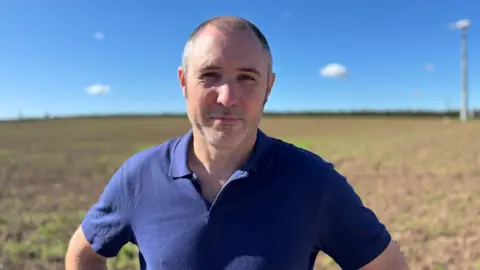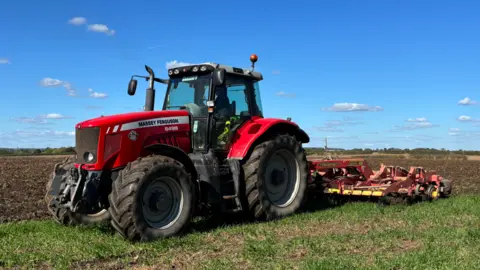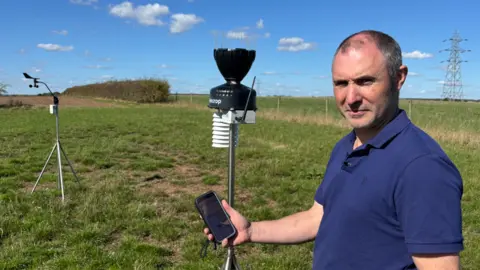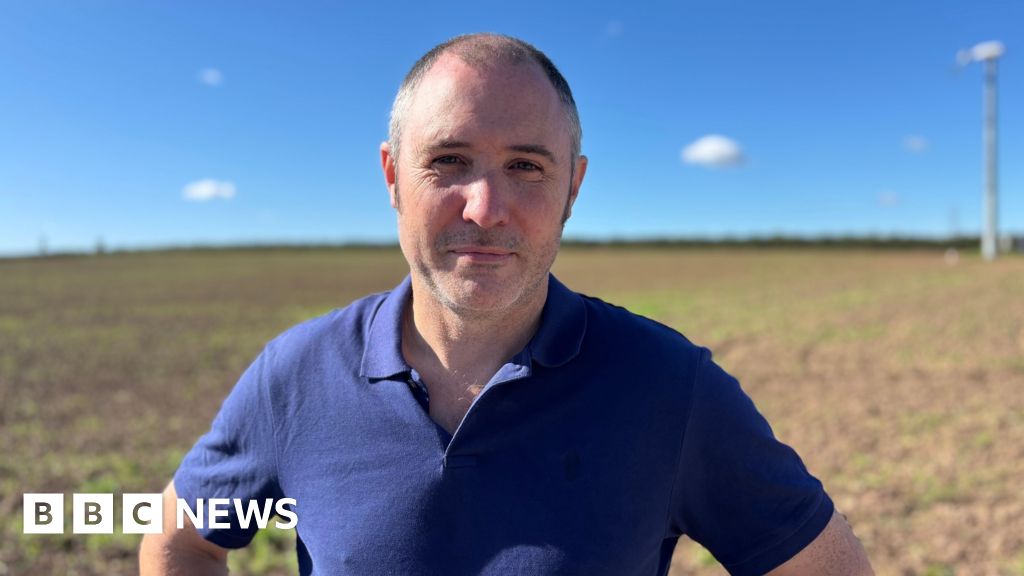Hugh Casswell, environment correspondent
 BBC
BBCExtremely dry weather in the UK this year has led to “significant reductions” in the yield of some crops, the National Farmers’ Union has said.
The country experienced one of its driest springs on record, and the East Midlands is one of several regions still officially in a drought.
Patrick Lynn, whose family has been farming at Hockerwood Park near Southwell since 1930, said this year’s harvest has been “a bit of a shocker”.
“Our spring barley, which we normally sow in March, was about half our normal yield,” he said.

“We drilled it, we put seed in the ground, and then it just didn’t rain for weeks and weeks and weeks.”
Mr Lynn said that while some crops planted the previous autumn had fared slightly better, they still grew between a quarter and a third less than what would normally be expected, leaving “a big hole in our bank account”.
He added that poor crop yields have coincided with a period when the world market is “oversupplied with grain”.
“The prices are as low as they’ve been for about 10 years, so it’s been a real struggle for arable farmers, particularly in the East Midlands,” he said.
He demonstrated the weather station on his farm which monitors temperature, windspeed and – crucially – rainfall.
“Until the end of August, we’ve had less than half our normal rainfall, and we aren’t in a wet part of the country either, so it’s been very, very dry,” he explained.

The conditions have been in sharp contrast to the previous season, when Storm Babet caused widespread flooding.
“We lost all our crops we planted that autumn, and then it was wet all the way through the winter and into the spring, and we barely got anything planted, so that was a really bad year,” he said.
“We thought this last year would be better, then we’ve had a terrible drought.”
Chair of the NFU’s combinable crops board, Jamie Burrows, said: “This year’s harvest was extremely challenging, with the unprecedented spell of dry weather during the first half of the year, mixed with sporadic rainfall, creating a hugely varied picture across the UK.
“Some farms recorded better-than-expected yields, while others experienced significant reductions in both yield and quality, which will hit cashflows and contribute to the already significant financial pressures on arable farming businesses carried over from harvest 2024 and the devastating wet weather.”

